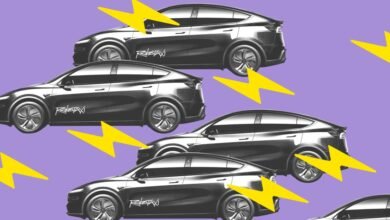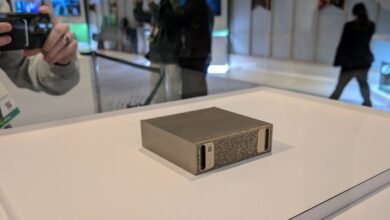AI Hardware Trends: Humanoids & AVs at Disrupt 2025

▼ Summary
– TechCrunch Disrupt 2025 will take place in San Francisco from October 27 to 29, featuring 10,000+ startup and VC leaders for discussions on groundbreaking tech and AI advancements.
– A key session will focus on AI hardware’s future, showcasing robotics and autonomous systems, led by experts Raquel Urtasun and Jeff Cardenas.
– Jeff Cardenas, CEO of Apptronik, develops humanoid robots for practical use, partnering with major firms like Google DeepMind and Mercedes-Benz.
– Raquel Urtasun, CEO of Waabi, is a leader in self-driving technology, pioneering scalable AV platforms using AI and simulation.
– AI hardware is evolving as the critical link between intelligence and action, enabling robots and autonomous systems to operate in real-world environments.
TechCrunch Disrupt 2025 is set to showcase the next wave of AI hardware innovation, with robotics and autonomous vehicles taking center stage at San Francisco’s Moscone West from October 27-29. The event will bring together over 10,000 industry leaders, investors, and tech pioneers for three days of cutting-edge discussions, including a highly anticipated session on the evolution of AI-powered hardware.
Two of the brightest minds in the field, Raquel Urtasun and Jeff Cardenas, will lead a deep dive into how AI hardware is transforming industries, particularly in humanoid robotics and self-driving technology. Attendees can expect an inside look at the engineering breakthroughs and real-world applications driving these advancements, from simulation to deployment.
Visionaries Shaping the Future
Jeff Cardenas, CEO of Apptronik, is at the forefront of humanoid robotics, developing machines designed to work seamlessly alongside humans. His company’s collaborations with industry giants like Google DeepMind, Nvidia, and Mercedes-Benz highlight the growing demand for intelligent, adaptable robots in commercial settings. Cardenas’ work focuses on making robotics not just technologically impressive but also practical for everyday use.
Meanwhile, Raquel Urtasun, founder of Waabi, is redefining autonomous vehicle technology through AI-driven simulation. A trailblazer in self-driving systems, her research has earned accolades from TIME, Business Insider, and the Royal Society of Canada. Waabi’s approach prioritizes scalability and intelligence, setting new standards for how AVs navigate complex environments.
Why AI Hardware Is the Next Frontier
The session underscores a pivotal shift, AI hardware is no longer just a support system but the bridge between intelligence and real-world action. Whether it’s robots operating in dynamic human spaces or autonomous vehicles mastering unpredictable road conditions, the next leap in AI depends on hardware that can perceive, process, and perform with precision.
Don’t miss this opportunity to hear from Urtasun and Cardenas at TechCrunch Disrupt 2025. Registration is now open, with early-bird discounts available before prices rise. Join thousands of innovators in San Francisco to explore the technologies shaping tomorrow.
(Source: TechCrunch)





